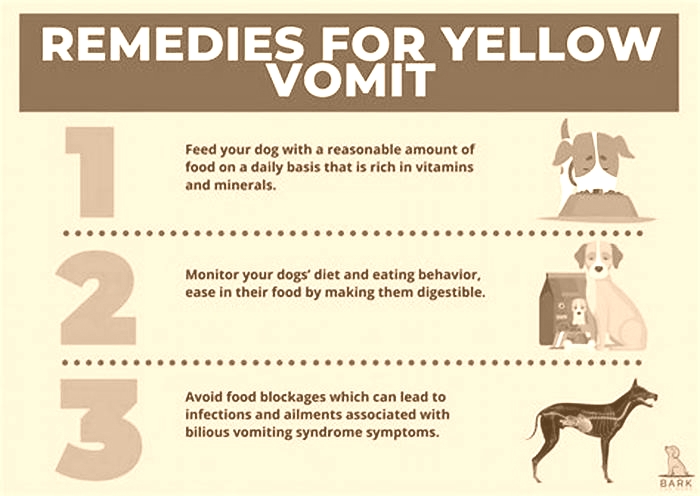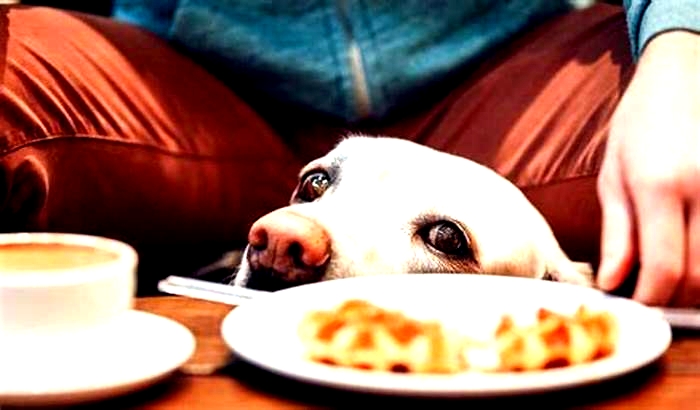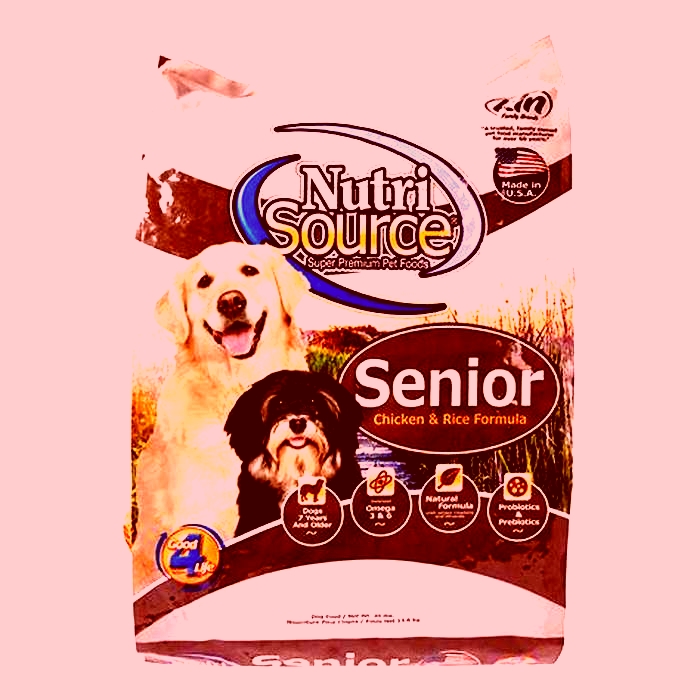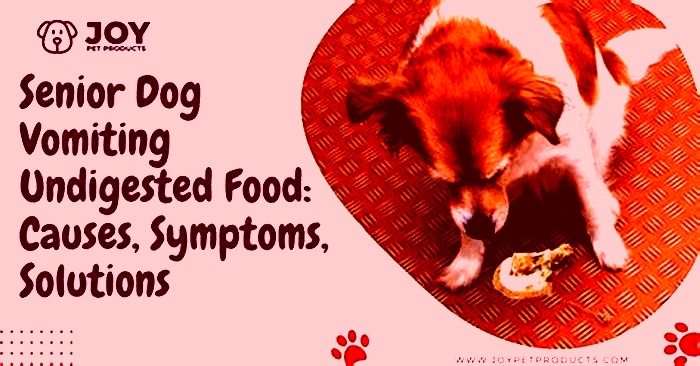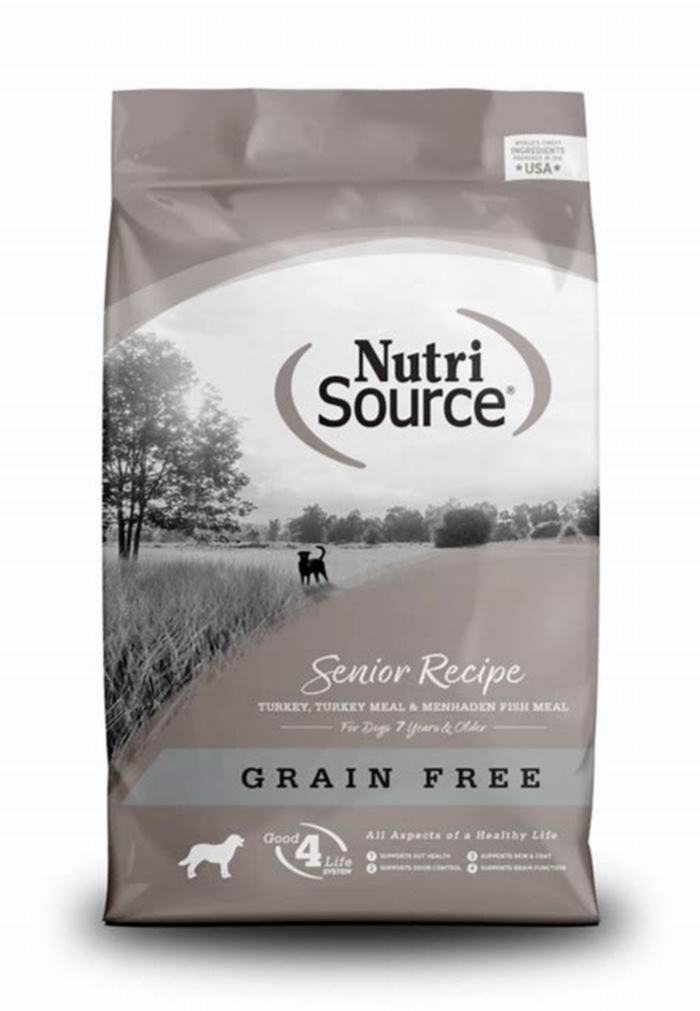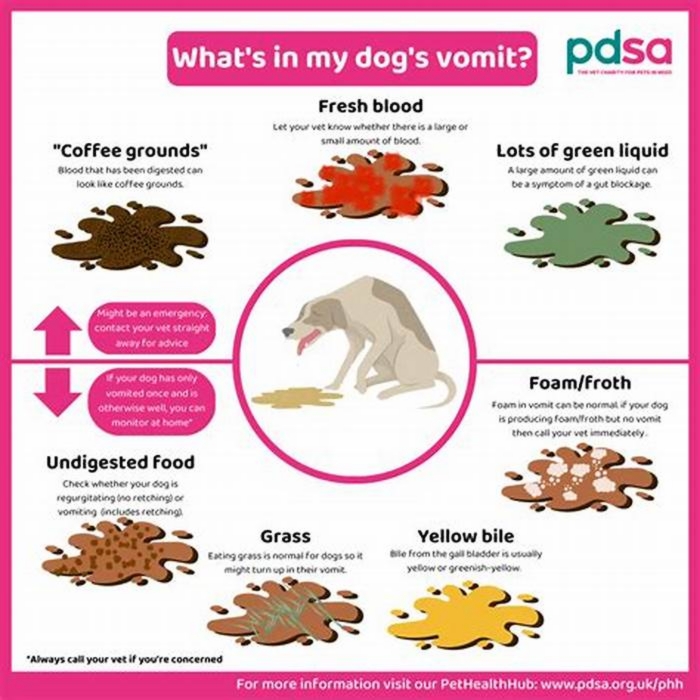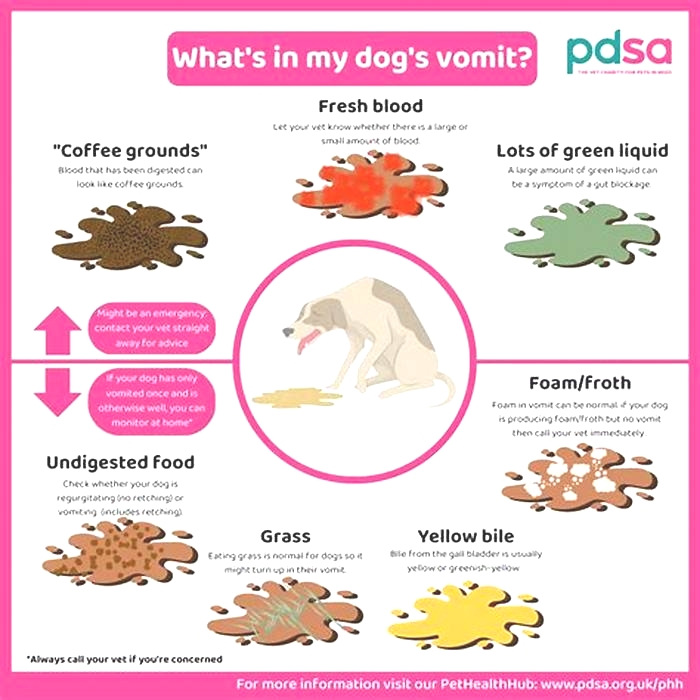senior dog vomiting at night

What Should I Do if My Old Dog Vomits [3 Tips from a Vet]

This article was updated on January 26th, 2024

Vomiting is a symptom that always causes concern amongst owners, and for good reason. While vomiting can be a sign of a very mild tummy upset, in older dogs it can often indicate more serious underlying disease including kidney disease, pancreatis or even cancer.
Its therefore crucial to have a good idea of what may be causing the vomiting and when you need to seek veterinary advice. In this article, our veterinarians Dr. Alex Crow and Dr. Jamie Whittenburg explains when to worry and what to do.
A one-off vomiting episode may not be a concern
The frequency of vomiting is something owners should pay attention to, as Dr. Crow explains:
A one-off vomiting episode may not be anything to worry about if your elderly dog is well in himself and not showing other signs of illness such as lethargy or diarrhea; many dogs will vomit if theyve eaten grass, for example.

Dr. Alex Crow
Veterinarian at SeniorTailWaggers.comFor dogs with no other signs of illness, try withholding food for 24 hours and slowly introducing bland food
Depending on the situation and the cause, there are some things that an owner can do to help alleviate their dogs symptoms. Please note that these tips or home remedies are not a substitute for veterinary care, and only apply to mild cases:
1. Withhold food for 24 hours. This can help clear out your dogs intestinal system and prevents overloading the stomach with food which may lead to vomiting.
2. Provide small amounts of water during this period.
3. Slowly introduce bland foods: this could include boiled chicken, rice, and scrambled egg. Keep offering bland foods to your dog for several days, if needed. This will help calm their upset stomachs. Learn more about bland diets for dogs.
If the above does the trick, then your dog may have had a simple case of gastrointestinal upset.
If your senior dog throws up multiple times or seems sick in other ways, its important to talk to your vet.
However, if your dog has made a habit of vomiting multiple times a day and otherwise seems lethargic or unwell, then veterinary attention may be required. Here are some of the signs of illness you should pay attention to:
- Loss of appetite or refusing to eat
- Diarrhea or changes in bowel movements
- Lethargy or decreased energy
- Abdominal pain or bloating
- Excessive drooling or swallowing
- Changes in drinking habits
- Weight loss or gain
- Unusual behavior or restlessness
- Fever
Most common reasons causing older dogs to throw up

Here are some of the most common causes of vomiting in older dogs and what can be done to help:
Gastrointestinal infection
This is particularly likely if your elderly dog has a habit of eating things they shouldnt.
- Symptoms: vomiting, diarrhea, loss of appetite, and abdominal pain.
- What it is: an older dogs immune system is not as strong as it used to be, and your dog may not be as resilient to eating rotten things as they once were as a puppy. It is important to be aware that there can be diseases that can leave senior dogs more susceptible to gastrointestinal infections, so if this becomes a frequent occurrence, its something that should be investigated by your vet.
- Treatment: usually, a gut infection can be treated easily with anti-vomiting medication and antibiotics. (Some dogs may need more intensive treatment involving hospitalization and intravenous fluid therapy.)
Liver/Kidney disease
- Symptoms: vomiting, increased thirst and urination, weight loss, or jaundice (yellowing of the skin and eyes).
- What it is: there are various potential causes of liver or kidney disease, from infection and inflammation to poisoning. Regardless of the underlying agent responsible, vomiting will often be a symptom shown as toxins build up in the bloodstream resulting in nausea.
- Diagnosis/Treatment: a simple blood test can help identify how well certain organs are functioning, possibly pointing towards the disease of the liver or kidneys. Treatment will vary on the exact cause, but the sooner disease is detected, the better the prognosis.
Pancreatitis
- Symptoms: pancreatitis will often result in vomiting, diarrhea, and general unwellness (for example lethargy or loss of appetite).
- What it is: the pancreas plays a key role in processing most of the fat your dog eats, so when it becomes overloaded, often pancreatitis ensues. Infection and inflammation of the pancreas result in nausea.
- Diagnosis/Treatment: diagnosis is via a blood test. Treatment of anything but mild cases of pancreatitis often involves intensive hospitalization, fluid therapy, and antibiotics.
Cancer
- Symptoms: vomiting, weight loss, decreased appetite, abdominal swelling, and changes in bowel movements.
- What it is: cancer in the guts will often lead to vomiting as any tumor that blocks the passage of food along the intestines only leaves one other direction for it to come back out!
- Diagnosis/Treatment: cancer is often diagnosed through a combination of blood tests and ultrasound scans but isnt always detectable. Samples of the tumor can often be taken by endoscope for analysis. Treatment and prognosis will depend on the type of cancer. While jumping to the conclusion that your dog may have intestinal cancer isnt always the first choice, it is important to be aware of this as a potential reality.
Certain medications
- Symptoms: some medications may cause vomiting as a side effect. In these cases, the vomiting is usually mild.
- What it is: certain non-steroidal anti-inflammatory medications can uncommonly cause gut irritation and vomiting. These include drugs such as meloxicam used to treat pain and arthritis. Vomiting can also occur after a general anesthetic as some of the drugs, particularly opioids, can cause nausea.
- Diagnosis/Treatment: vomiting in these cases is usually not much to worry about and will resolve within a short period of time. If the vomiting doesnt stop after 24 hours, then visit your local vet.
Intestinal parasites / worms
Parasitic disease and worms can affect dogs when they are older just as much as when theyre young, especially if they are known for eating things they shouldnt.
- Symptoms (worms): vomiting, diarrhea, weight loss, a bloated abdomen, coughing, and visible worms in stool.
- What it is: an overload of worms can result in damage to the intestinal lining and the release of toxins, resulting in nausea. Dogs with a high worm burden will often also have diarrhea and even vomit worms.
- Diagnosis/Treatment: treatment of parasitic disease is done through anti-worming medication. Its important to keep your dog up to date with a regular worming regime, even when they are elderly.
Other causes:
Car sickness: many dogs hate traveling, and being in the car can make them feel very nauseous. If you notice a clear relationship between your dog traveling and them vomiting, then its likely that the cause is motion sickness. There are various medications that your vet can prescribe to help, but the best cure is training. Get your dog used to being in the car, even if you dont drive anywhere. Slowly build up journey time from there, starting with just 5-minute drives.
Foreign object ingestion: if your dog has suddenly started violently vomiting, seemingly out of nowhere, then one potential concern is if they have ingested a foreign object that has become trapped within the gastrointestinal system. If your old dog has a tendency to chew up toys and eat pieces that they shouldnt, then there is a possibility that those parts may have become stuck. This will result in blockage of the intestines, therefore only leaving one direction for food to come out the mouth.
This is an emergency, and your vet will likely want to perform X-rays to check for a blockage and may even need to operate on your dog to remove the foreign object.
See the vet in these cases:
- If your dogs vomiting doesnt improve with basic home care, or recurs shortly afterward,
- if the vomiting has been going on for days or weeks or gradually increases in frequency,
- if your dog is otherwise unwell.
Your vet will perform a full clinical exam, looking for signs of pain and checking your dogs temperature. From this point, they may trial symptomatic treatment or decide to perform further investigations. These may include blood tests to check various organs function, protein levels, and white blood cell counts, or X-rays to look for any internal blockage.
Vomiting can indicate anything from a mild stomach upset to a more severe, even life-threatening, disease. For this reason, you can never be too safe; take your dog to the vet at the first signs of vomiting.
Is your dog vomiting or regurgitating?
Its also important to make the distinction between vomiting and regurgitation since the two phenomena have very different causes and, therefore, very different treatments:
Regurgitation: in contrast to vomiting, regurgitation is more of a passive process and will often result in non-digested food coming back up: the food is chewed, mixed with a bit of saliva or mucus. Regurgitation is a sudden & effortless expulsion, sometimes in cylindrical shape (it often retains the shape of the esophagus). Learn more.
Vomiting: Vomit typically appears as partially digested food mixed with bile or stomach acids, often in a more liquid, disorganized form.
If youre not sure, take a video of your dog displaying what you think is vomiting, and the vet can help make this distinction.
Related posts:
Alex Crow, VetMed MRCVS, is an RCVS accredited Veterinary surgeon with special interests in neurology and soft tissue surgery. Dr Crow is currently practicing at Buttercross Veterinary Center in England. He earned his degree in veterinary medicine in 2019 from the Royal Veterinary College (one of the top 3 vet schools in the world) and has more than three years of experience practicing as a small animal veterinarian (dogs and cats).
View all posts
Disclaimer: This website's content is not a substitute for veterinary care. Always consult with your veterinarian for healthcare decisions. Read More.
Why Does My Dog Throw Up at Night? 5 Vet-Reviewed Causes
The information is current and up-to-date in accordance with the latest veterinarian research.
Learn moreThere are plenty of things about owning pets that arent pleasant, from picking up their poop to cleaning up after their bouts of sickness. Waking up in the middle of the night to the sound of our canine best friend throwing up is never funfor us or themand can be one of the most worrying things about owning a dog.
A dog throwing up at night is a common issue, regardless of their breed, age, or sex, and the causes can range in severity. This list contains the potential reasons that your dog is throwing up at night, when you need to see a veterinarian, and how you can help your sick pup feel better.

Why Does My Dog Throw Up at Night? (5 Causes)
1. Bilious Vomiting Syndrome
Also known as reflux gastritis, bilious vomiting syndrome is one of the most common causes of a dog vomiting at night or in the early morning. If they frequently throw up bilea yellow, watery substancethis is probably the reason. Its caused by bile entering the stomach and causing irritation during the digestive process, especially on an empty stomach. While it can happen in dogs of any age, especially if theyre only fed once a day, it mostly affects older canines.
If there isnt a more serious underlying health issue causing your dogs night vomiting, this issue can be resolved by feeding your dog more frequent small meals. Sometimes giving them a handful of kibble before bed is enough to lessen their vomiting.
If changing their diet doesnt work, though, talk to your veterinarian to see what can be done to help them.
2. Food Intolerance
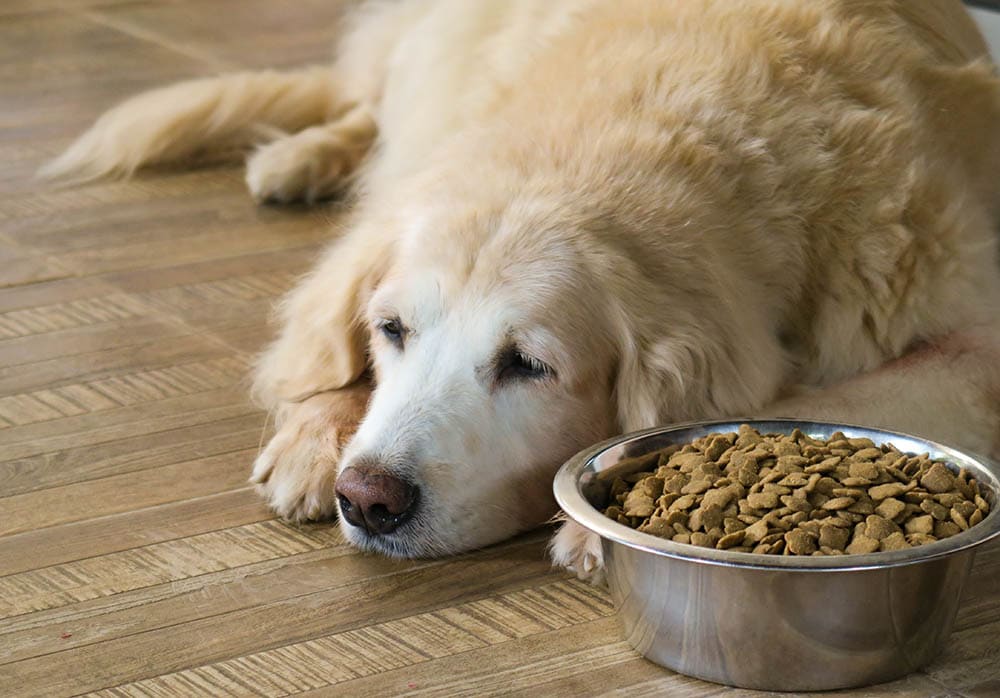
Food allergies and food intolerance are often used interchangeably when it comes to issues that your dog might have with food, especially since they have similar symptoms. There is a big difference between these health problems, though. Allergies are a result of your dogs immune system overreacting to something that theyve come into contact with. Where food is concerned, it can be anything from peas to chicken.
Food intolerance, however, is a more accurate way of describing issues that arent caused by your dogs overactive immune system. Among these adverse reactions, food poisoning is one of the biggest.
You have to make sure that your dogs food is stored properly and that they dont eat spoiled meat, especially if they tend to get into any trash bags when youre not looking. While they might think that its a tasty treat, they can still suffer from vomiting and diarrhea if they ingest spoiled food.
3. Motion Sickness
Traveling with your dog can also be a cause of vomiting. Like humans, dogs can get motion sickness, especially if theyre not used to being in a car. Anxiety and the movement of the car itself can be reasons that your pup is feeling sick. This isnt necessarily limited only to nighttime. Your dog can get carsick whenever you take them out for a drive.
You can help your pup get used to car trips by slowly desensitizing them to the vehicle before you take them for a drive. Sit with them in the car with the engine off, and slowly work up to turning the engine on, then taking short trips, and then longer drives. Keeping a window open can help too, especially in hot cars.
By making sure your dog enjoys the car ride, theyll be less likely to be anxious enough to feel sick at all.
4. Obstruction
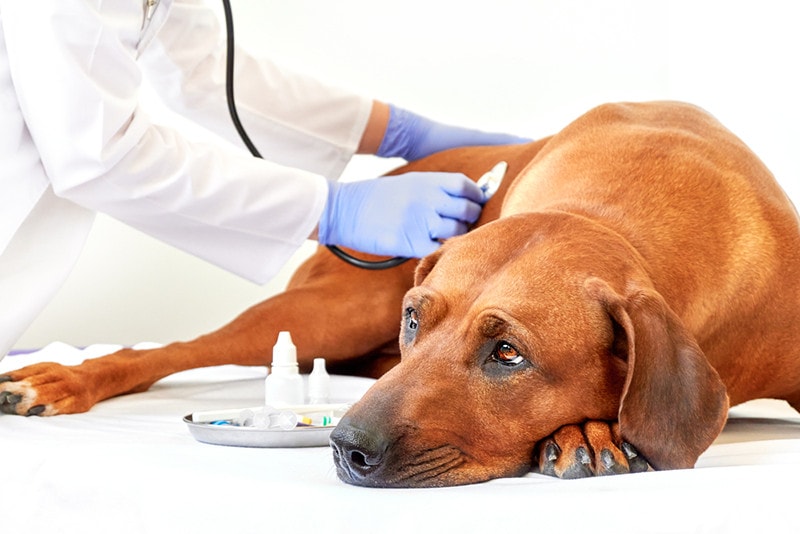
No matter how old they are or their breed, dogs are curious creatures. Since they dont have hands, they use their mouths to explore things that theyre interested in, which can lead to accidentally swallowed objects. They can also suffer from pica, a condition where they crave and eat non-food items that can get stuck in their digestive system.
Vomiting can be caused by a blockage in your dogs digestive system, along with constipation, straining to poop, behavioral changes, diarrhea, abdominal pain, and lethargy.
This isnt something that you can treat at home. If you catch your dog eating something that they shouldnt and they start to show these signs, you must take them to a veterinarian. Most of the time, surgery is required to fix the issue.
5. Stomach Upset
Another common reason for your dog puking at night is an upset stomach. Both food intolerance and obstruction can cause your dog to have an upset stomach, but it can also be caused by several other things. Medication side effects, bloat, dietary changes, parvovirus, intestinal parasites, and pancreatitis are a few of the major causes.
Sometimes, stomach upset can go away on its own. Stress-related stomach upset, for example, can be soothed by reassuring your dog and keeping their routine as stable as possible. However, in some cases, veterinary intervention is required. Bloat, ingestion of toxic substances, reactions to medication, and kidney or liver failure all require a trip to your veterinarian.

Whats the Difference Between Vomiting and Regurgitation?
Recognizing the difference between vomiting and regurgitation is an important distinction to make if you want to help your dog. Itll also help you determine whether your dog requires medical assistance.

Regurgitation
Unlike vomiting, regurgitation usually occurs immediately after your dog has eaten. Its also less taxing on your dogs body, with no abdominal contractions. Usually, its a result of an issue with your dogs esophagus rather than farther along in your dogs digestive system. Due to this, the food never made it to your dogs stomach, so it is often undigested.
Causes of regurgitation include:
- Eating too fast or too much
- Throat problems
- Congenital problems
- Cancer, foreign bodies, rabies, poisoning, and myopathy
- Esophageal disease
Vomiting
Where regurgitation is somewhat effortless, vomiting is more strenuous on your dog. Not only can your dog feel nauseated and restless, but they can also suffer from muscle contractions in their abdomen. It can be a pretty uncomfortable situation for your dog.
Most of the time, cases of acute vomiting go away on their own within a few hours. However, chronic vomiting, or vomiting that lasts for longer than 24 hours, suggests the presence of an underlying health issue. In this case, its best to visit a veterinarian for a proper diagnosis.

What to Do If Your Dog Vomits
Taking care of your dog when they vomit isnt as simple as cleaning it up and going back to bed. While some cases of vomiting dont require much interference, there are a few signs to look out for that can suggest a more serious underlying condition.
Here are a few things to consider when cleaning up after your sick dog.
Hepper Advanced Bio-Enzyme Pet Stain & Odor Eliminator Spray- ADVANCED ENZYMATIC CLEANER - Penetrates the most stubborn smells and stains at the deepest molecular...
- FOR ANY MESS, ON ANY SURFACE - This pet odor eliminator cleans your carpets, floors, furniture,...
- FRESH, NATURAL ODOR - Our unique formulation doesn't rely on dangerous or unpleasant chemical...
If your house smells like you have a dog, it's time to try out the Hepper Advanced Bio-Enzyme Pet Stain & Odor Eliminator Spray! This amazing product removes even the most stubborn stains and odors, and it comes with a 100% satisfaction guarantee. Click here to learn more about this wonderful product.
At Dogster, weve admired Hepper for many years, and decided to take a controlling ownership interest so that we could benefit from the outstanding products of this cool pet company!
Appearance
Vomit is one thing that everyone would rather scoop up and ignore, but the appearance of your dogs puke can give you key insight into why theyre having problems.
Yellow, foamy, or liquid-like vomit mostly contains bile and is often a result of reflux gastritis and an empty stomach. Green vomit can also be caused by this, along with the ingestion of grass. This type of vomiting can often be rectified by feeding your dog more often but may require treatment from a veterinarian.
Large infestations of worms can frequently cause vomiting, and they will appear in your dogs vomit. If you see this, speak with your veterinarian about deworming treatment.
Another serious concern when it comes to your dogs vomit is the sight of blood. The amount can vary, though, and a pink tinge might not be the sign of a serious issue, provided that it doesnt progress further. But fresh blood, clots, or a coffee-ground appearance can all signal bleeding in your dogs digestive system. If you see any of these signs, youll need to contact your veterinarian.
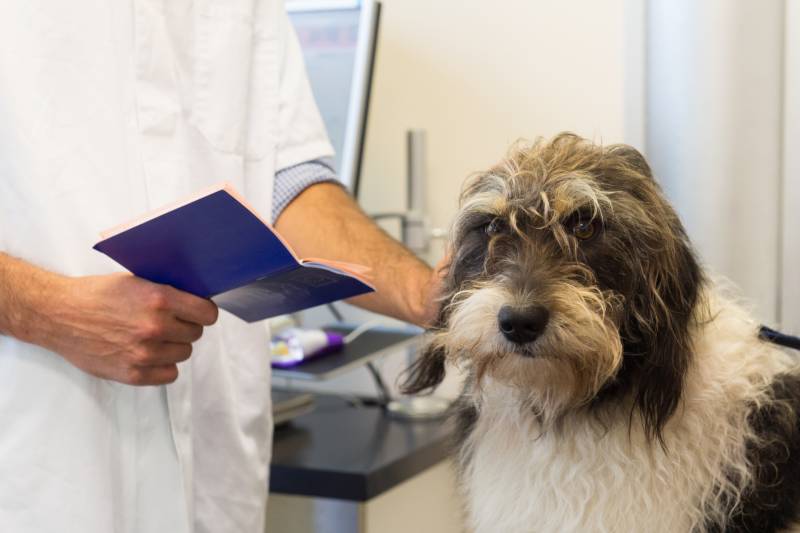
Frequency
Dogs eat many things that can give them an upset stomach and lead to vomiting. Sometimes, these issues go away on their own once whatever set them off passes through their system. This is why its important to pay attention to how often they vomit.
If its a one-off and theyre still acting normal, its likely just your dog expelling something that didnt agree with them. Vomiting that lasts longer than 24 hours or is accompanied by other signslike lethargy, blood, diarrhea, or dehydrationis more serious.
Age
The age of your dog can also affect how serious the vomiting is. Puppieswhich are at greater risk of dehydration and hypoglycemiaand geriatric dogs should both be taken to a veterinarian.

Conclusion
Your dog vomiting at night isnt always a sign of a serious health issue. If your dog throws up bile, it can often be caused by an empty stomach and be alleviated by feeding your dog smaller meals more often. Frequent vomiting, the appearance of blood, or the presence of other signs can suggest a much more serious issue, though.
Pay attention to the appearance of your dogs vomit and how your pup is behaving to determine whether you need to visit a veterinarian or if itll pass on its own.
See Also:
Featured Image Credit:Taisya Korchak, Shutterstock

